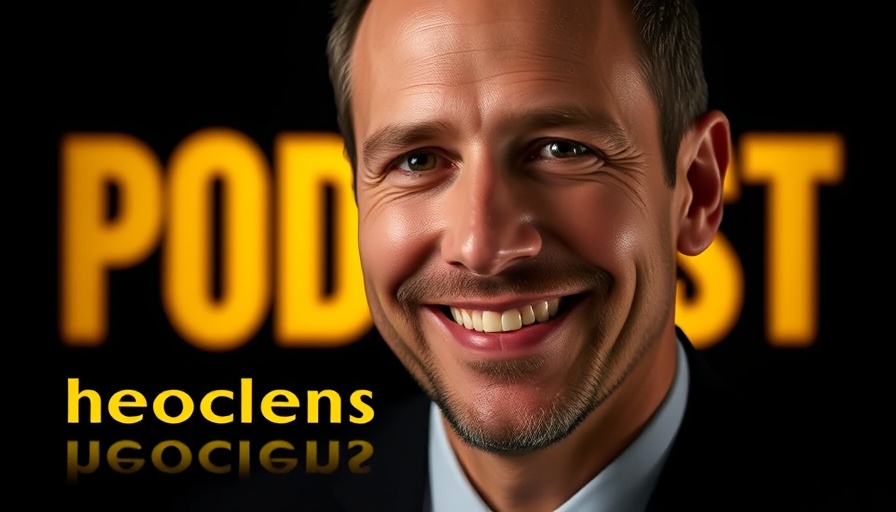
Exploring Marc Andreessen's Vision for America: The Intersection of Tech, Power, and Politics
In the recent episode of Lex Fridman's podcast, Marc Andreessen—a prominent entrepreneur and venture capitalist—dove deep into the complexities of American politics and technology. A well-known figure in Silicon Valley, Andreessen's insights provide a unique lens through which we can examine the relationships between technology, immigration, and the political landscape of the United States. With his impressive pedigree as co-founder of Netscape and Andreessen Horowitz, he stands at the crossroads of innovation and governance.
The Future Landscape: Predictions and Opportunities
During the podcast, Andreessen articulated his vision for a "best possible future." He suggested that the trajectory of technology—including artificial intelligence—will reshape traditional values, governance, and everyday life. His optimism about the capabilities of AI posits that these advancements can drive societal progress, but only if approached with careful consideration. The conversation also hinted at the potential hurdles, including regulatory and ethical challenges that are already emerging.
Historical Context: Silicon Valley's Shift in Political Support
One of the most striking elements of Andreessen’s discussion is how it mirrors sentiments echoed in a New York Times opinion piece highlighting the shifting political allegiance within Silicon Valley towards Trump. Historically, tech giants aligned themselves with the Democratic Party, but a growing discontent—particularly around progressive policies that aimed to regulate Big Tech—has propelled influential figures like Andreessen towards the Republican side. This pivot invites questions about the long-term implications for tech tax policies and immigration, which are critical for the workforce that powers Silicon Valley.
The Dynamics of Power and Censorship
In a world where technology intersects with politics, Andreessen pointed out the increasing pressures that entrepreneurs and investors face regarding self-censorship and the nature of power. His remarks echo a broader concern within the tech community, suggesting that the landscape is becoming increasingly fraught with political scrutiny. The potential for censorship on tech platforms can lead to a chilling effect on innovation and discourse, stifling the very creativity that has fueled the tech boom.
The Role of Immigration in Tech Innovation
A significant part of the podcast focused on the impact of H1B visas and immigration policies on the future of American tech. Andreessen argued that a robust immigration policy is essential for maintaining the innovative edge that has characterized Silicon Valley. This view aligns with larger economic principles advocating for diversity as a driver of creativity and productivity in the tech sector.
Conclusion: The Road Ahead for America
Marc Andreessen's conversation with Lex Fridman serves as a profound commentary on the interplay between technology and politics. As we stand at a historical crossroads, it is imperative to consider how these dynamics will shape American society in the coming years. As we navigate these complexities, the voices of thought leaders like Andreessen will be essential in guiding discussions around solutions that leverage technology for a better future.
 Add Row
Add Row  Add
Add 
 Add Element
Add Element 


Write A Comment